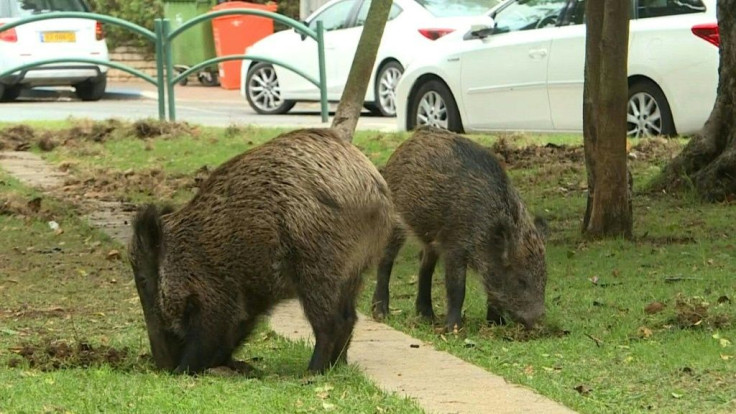What Is A Feral Swine Bomb? Wild Pigs Are Growing And Causing Major Damage
While there are plenty of problems plaguing the world, Americans may be unaware that a feral swine bomb has become a major concern in the U.S.
Wild swine, an invasive species that can harm health, the environment, and the economy, have been wreaking havoc across the country and causing $2.5 billion in damage, The Atlantic reports.
Dale Nolte, the manager of the National Feral Swine Damage Management Program at the U.S. Department of Agriculture, revealed that the wild pig population is growing at a rapid rate.
“I’ve heard it referred to as a feral swine bomb. They multiply so rapidly. To go from a thousand to two thousand, it’s not a big deal. But if you’ve got a million, it doesn’t take long to get to 4 [million], then 8 million,” he said.
To date, there are as many as 9 million feral pigs across at least 39 states across the U.S. The animals are likely a mix of domestic breeds and European wild boar.
The feral pigs, which can carry at least 30 viral and bacterial diseases, are an evolving species that are quickly wising up to humans’ hunting habits.
Getting the population under control to minimize the damage to crops and farm life is still trial and error at this point. Experts advise that it is only wise to shoot at a wild pig if it’s a guaranteed hit, as shooting and missing could cause the pig to roam into new territory creating a path of destruction. Furthermore, hunted pigs tend to become nocturnal, which makes them even harder to track.
Federal employees have yet to come up with a solid plan to combat the feral swine problem. While states like Texas and California encourage recreational hunting to reduce the pig population, other places are relying on aerial shooting to kill herds. However, the methods continue to fail due to surviving pigs that continue to roam further across states.
For now, experts are certain that early prevention is the key to stopping a feral swine bomb, especially in areas where there is no population.

© Copyright IBTimes 2024. All rights reserved.






















